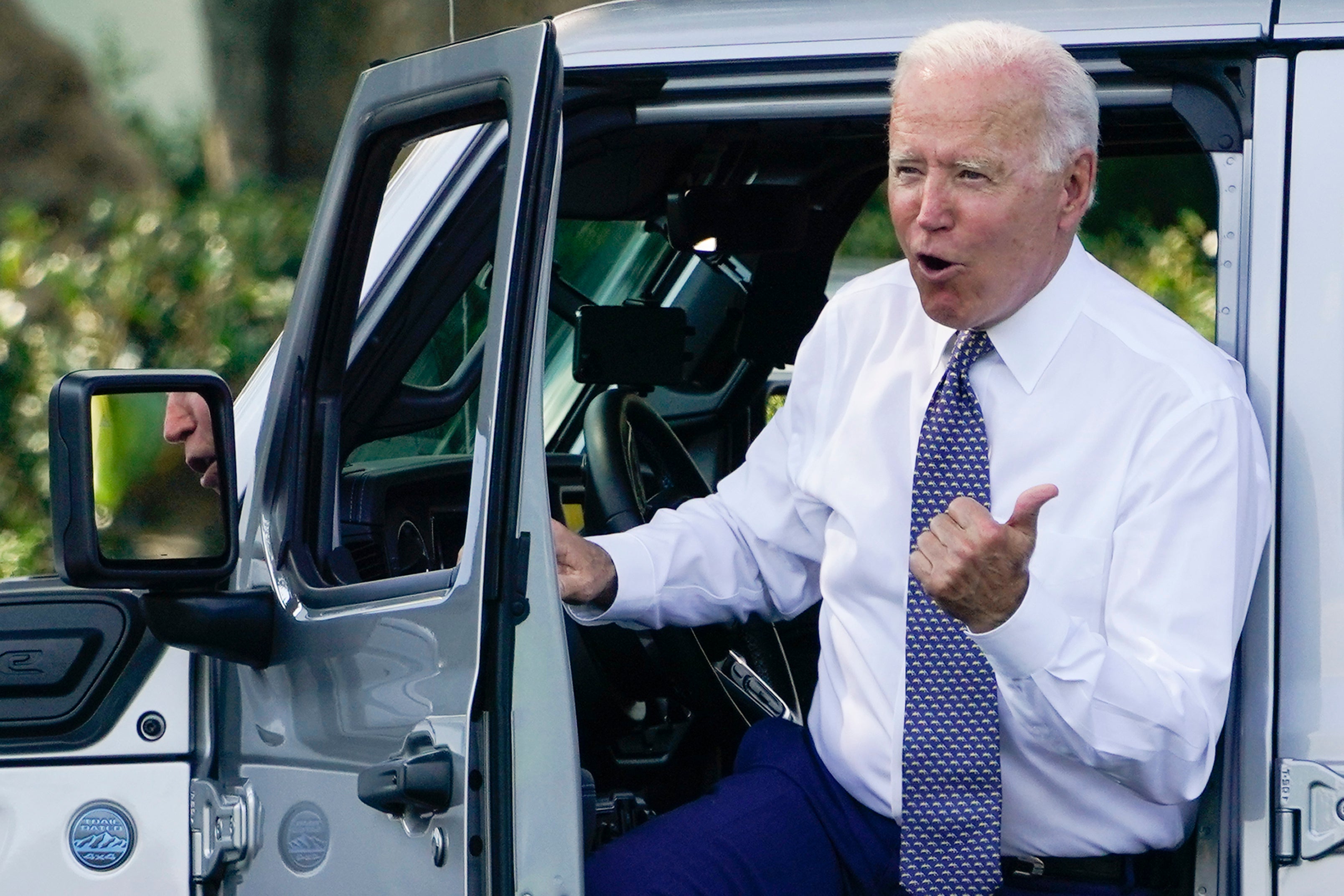EXPLAINER: The impact of Joe Biden's new fuel economy rules
President Joe Biden wants to erase Donald Trump’s rollback of automobile pollution and fuel economy standards

President Joe Biden wants to erase Donald Trump s rollback of automobile pollution and fuel economy standards.
He proposed new rules Thursday and unveiled a nonbinding deal with most automakers to have electric, plug-in hybrid or hydrogen-electric vehicles make up half of their U.S. sales by 2030.
The moves are part of Biden's plan to fight climate change by persuading people to swap their gas-powered vehicles for those that run on electricity.
___
WHAT WILL THE NEW STANDARDS DO?
They basically return pollution and gas mileage requirements close to those adopted when Barack Obama was president. The Obama standards required the fleet of new vehicles to average 5% in carbon dioxide emissions cuts every model year through 2025. Trump rolled that back to 1.5% per year and added another year to the rules. Biden's plan requires 10% emissions reductions in 2023 and 5% every year after that through 2026. Trump's standards ended with the fleet averaging about 29 mpg in real-world driving. The Biden rule should be close to the Obama mileage requirement, about 37 mpg. Consumer Reports calculates that the new standards will deliver only 75% of the emissions cuts from the original Obama standards because of delays caused by Trump and loopholes.
___
WILL THEY HELP WITH CLIMATE CHANGE?
They should, although environmental groups say they don't move fast enough to tackle an acute problem that has warmed oceans and spawned more powerful storms, wildfires and floods. They also complain that the standards don't make up for increased emissions during the Trump years, and bemoan credits that will let automakers offset gas-guzzling vehicles. Some say there should be a plan to phase out gasoline passenger vehicles entirely by 2030. The EPA says over the years its proposal will save about 200 billion gallons of gasoline and cut about 2 billion metric tons of carbon pollution. That's nearly three times the amount that autos emit in a year. If automakers sell more electric vehicles, that could cut emissions as well, although the precise benefit depends on the fuel used to generate electricity that charges them.
___
WILL THE ELECTRIC VEHICLE DEAL BRING MORE CHOICES?
Maybe. The automaker agreements aren’t binding, so there's no requirement to comply. But well before Biden was elected, automakers already were headed toward a similar sales goal, developing more EVs after seeing the success of global sales leader Tesla. The industry says it can meet the goals only if the government spends big on charging stations and incentives to get people to buy EVs, so Biden will play a big role in getting Congress to approve funding.
Ford, General Motors and Stellantis have promised fully electric pickup trucks, and automakers are starting to roll out electric SUVs in the heart the U.S. market. The consulting firm IHS Markit says there are only about 50 fully electric models on sale now in the U.S., a fraction of the roughly 350 models sold by all automakers. But it expects 130 EV models by 2026. Dave Cooke, senior vehicles analyst with the Union of Concerned Scientists, expects EVs to become available in all states because of the deal. At present, many are sold only on the coasts where there are state zero-emissions-vehicle requirements.
___
WILL THIS BE THE END OF THIRSTY MUSCLE CARS OR GIANT SUVS?
Probably not. But since the standards come close to matching the Obama requirements, they could get tougher on big trucks and SUVs. That likely will force automakers to make electric or hybrid versions of their thirstier models, but it probably won't cancel them. “I think they can do a lot with the same truck platform, and if you want the big SUV, you'll have to get it in a hybrid or electric,” said Kristin Dziczek, senior vice president and policy analyst at the Center for Automotive Research, an industry think tank. And muscle cars are likely to be even faster when switched to electricity. In nearly all cases, electric vehicles have more instantaneous power than gasoline vehicles.
___
WILL AN ELECTRIC VEHICLE COST MORE THAN A GAS CAR OR TRUCK?
Electric vehicles now cost $8,000 to $10,000 more than a combustion-engine vehicle, says the consulting firm Alix Partners. But automakers say the difference is narrowing as they sell more EVs and develop lower-cost batteries. Biden has proposed expanding tax credits and rebates for EV buyers. There's now a $7,500 federal tax credit, but it's capped when automakers reach 200,000 in EV sales. (GM and Tesla can no longer offer it). One bill in the Senate promoted by Biden would expand it to all automakers and offer up to $12,500 in tax credits for five years, making EVs more affordable.